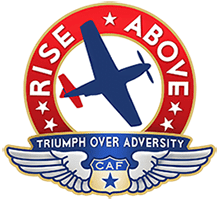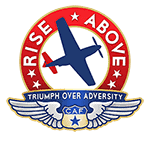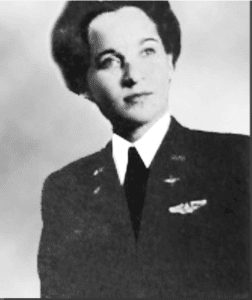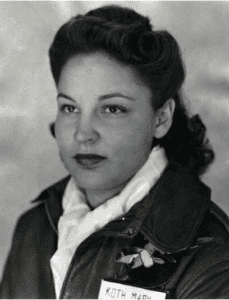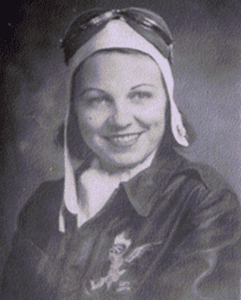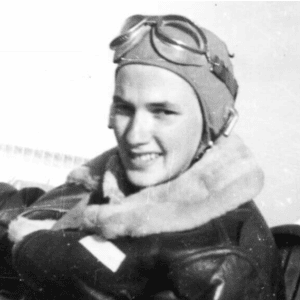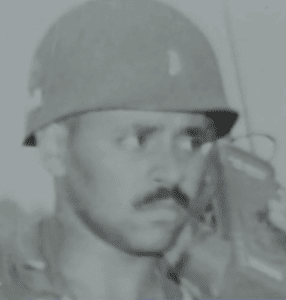 Major Bertram “Bert” Levy
Major Bertram “Bert” Levy
1922- 2020
Unit: 477th Bombardment Group
Bertram Levy knew from Dec. 8, 1941 (the day after the Pearl Harbor bombing by the Japanese) onward that he wanted to fly planes for the U.S. Army Air Corps, but in the 1940s, the cockpit was one of many places from which Levy and other African Americans were excluded.
“I went to the recruiting office…on the southeast corner of 13th and Market, facing Wanamaker’s,” said Levy, a longtime East Mt. Airy resident. “We went down to try to enlist. We were told with no hesitation, ‘You can’t enlist in the Air Corps. We don’t have any colored people in there.’”
Still, Levy was determined, and because he hadn’t received a draft notice, he didn’t have to compromise. By the summer of 1943, the climate in the military had changed enough to allow Levy to train and join the ranks of the Tuskegee Airmen, the first African American military aviators in the history of the U.S. Armed Forces.
One of the two fighter groups that comprised the Airmen, the 332nd Fighter Group received three Distinguished Unit Citations during the war. As individuals, they earned numerous awards, including 96 Distinguished Flying Crosses, 14 Bronze Stars, and 744 Air Medals. In 2007, the surviving Tuskegee Airmen were awarded the Congressional Gold Medal.
Levy’s unit, the 477th Bombardment Group, trained but never served in combat. In fact, they trained over and over again, mostly because higher-ups in the military were reluctant to use them.
“Theater commanders…had a hell of a lot of authority,” he said. “They would say, ‘I don’t want them people over here.’ I can imagine how they described it…so we’d go back and start training all over again.”
Levy and his colleagues were given “make-believe” work to fill in the down-time between training cycles. They also found creative ways to get alcohol, since Tuskegee is located in Macon County, Alabama, which is dry.
“We had a guy with a restaurant, Brown’s Chicken Shack,” he recalled. “You could walk down there… and get a bottle of Park & Tilford (whiskey). Only difference is, he’d charge you $15 for a $4 bottle. Every once in a while, we would say we were going to do some t & o, takeoff & landing,” he said. “We’d go over to such and such a field because in that field, you could go to the regular store and back down to four bucks, like it should be.”
At the time the war ended, in August of 1945, the 477th was in training to go to the Pacific. Levy credits the ascension of Harry Truman to the presidency with helping to end their cycle of endless training. “What we call the Father of Aviation as far as we’re concerned was Harry Truman—‘Give ‘em hell, Harry,’” he said. “Truman didn’t say, ‘How ‘bout it, guys. Want to take these guys?’ He said, ‘You will take this unit.’”
After the war, Levy made a career of the Army. He believes his status as a Tuskegee Airman opened up a lot of doors for him. “Believe it or not, that got a lot of attention,” he said, “so I got a lot of breaks, and I’d go where the breaks were.”
Even so, he found he had to switch away from flying planes because the opportunities to do that in the military had diminished. He ended up working in administrative positions such as intelligence officer and staff specialist at airfields in the Washington, D.C. area and for two National Guard units in Pennsylvania. He also became an expert at shooting with a rifle and Colt .45 handgun, and managed the pistol team for the 21st U.S. Army Air Corps. Levy retired as a Major in 1968.
Of the 1,500 candidates who qualified for “first seat left” among the Airmen, fewer than 400 were still alive at the time the group received their Congressional Gold Medal I 2007. In the Greater Philadelphia chapter of the original Tuskegee Airmen, only six of the 43 members are left. “That group is gonna be history,” Levy said. “Little by little, people will just forget us, which is all right.”
After his retirement from the military, Levy became a real estate broker; he opened an office with two other brokers at Broad Street and Erie Avenue, and was one of the first African Americans on the Philadelphia Board of Realtors.
Sources:
6abc.com
GREATER PHILADELPHIA CHAPTER OF TUSKEGEE AIRMEN, INC. Posted by: Nicole Falana
